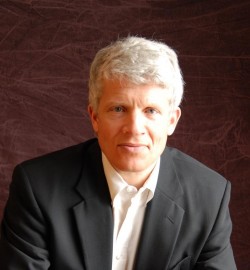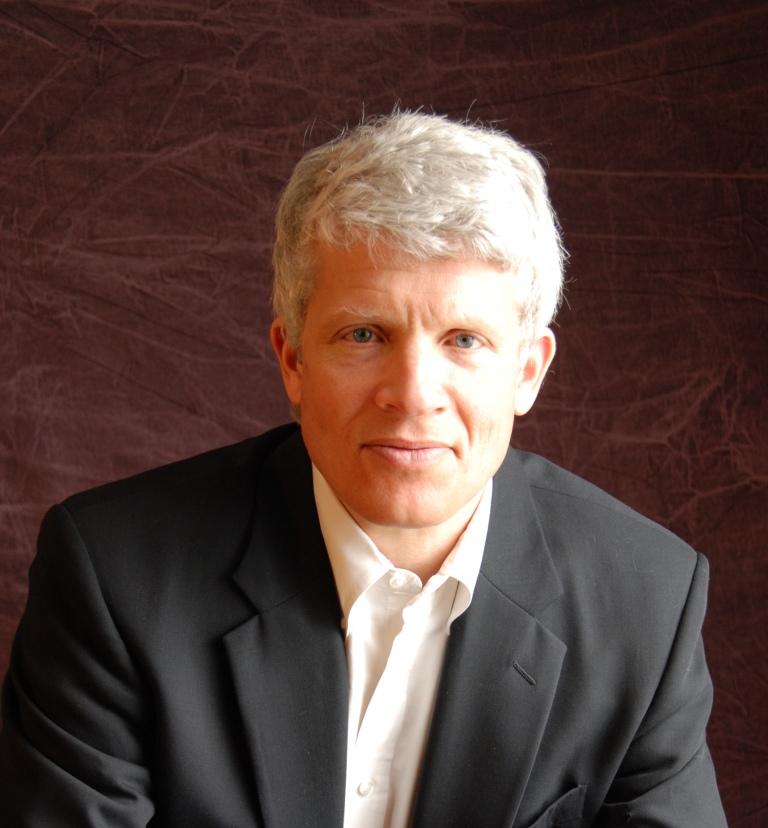 Paul RobertsPaul Roberts, author of the influential 2004 book The End of Oil, cautions that we can’t expect the end of oil spills any time soon. Environmentalists are using the ongoing Gulf of Mexico disaster to argue for a permanent stop to offshore drilling, but reality check: the U.S. is decades away from shedding its reliance on oil, says Roberts, even if we do everything right. Here’s his perspective on the current spill and our deep dependence on crude.
Paul RobertsPaul Roberts, author of the influential 2004 book The End of Oil, cautions that we can’t expect the end of oil spills any time soon. Environmentalists are using the ongoing Gulf of Mexico disaster to argue for a permanent stop to offshore drilling, but reality check: the U.S. is decades away from shedding its reliance on oil, says Roberts, even if we do everything right. Here’s his perspective on the current spill and our deep dependence on crude.
—–
What do we know with any certainty about the cause of this spill?
At this point, we still don’t know exactly why the well blew out, so any intensive postmorteming is going to be premature and possibly off base. This may turn out to be gross negligence, or it may turn out to be one of the fluke accidents that happen in complex industrial systems. The offshore oil system is massive and complex with thousands of wells and miles and miles of underwater pipeline, so from a simple statistical standpoint, accidents are going to happen. I think the real question is, what can you do to make that less likely?
So, certainly, you have to look at the issue of contingency plans and preparedness. The same goes for the question of corporate culture. BP has long championed itself as the “green” oil company, and has often contrasted itself to Exxon, which is wildly reviled as the bad hat environmentally, due in large part to the Exxon Valdez spill. But the fact is that Exxon, due to changes made after the Valdez spill, has a much better spill record than BP, which has suffered a series of safety and environmental lapses even before this latest mess.
What if investigators conclude that the cause of the spill was equipment failure, or human error, or just bum luck? Will anything actually change?
What’s really tough here is that even if we find that it was operator error, and we impose fines and pass new laws and make that particular error less likely to recur, we’re still faced with a system in which there is a strong probability for error or breakdown. Humans make mistakes. Machinery wears down. A lot of environmentalists say these kinds of risks simply aren’t acceptable, and at the end of the day, that may be true. Certainly, this spill is going to bolster the argument that the risks inherent in the modern offshore oil system simply aren’t tolerable risks and, more fundamentally, that we need to move away from oil. Already, you hear that argument from a lot of greens.
The problem is, even if we decide that the risks are too great, what’s our plan B? At present, our economy is completely dependent on oil. And the truth is, we don’t really have a plan B. We have a lot of great ideas, and some really good first steps in terms of developing and commercializing alternative fuels and technologies. But we are nowhere near the scale necessary to replace oil, or even to reduce oil use enough to rapidly reduce the need for wells in places like the Gulf of Mexico. We can reduce, substantially, but it takes time.
I know people get tired of hearing this, but the facts are facts. The world is a big place, with a lot of people and a lot of oil-based infrastructure; it took us a century to build [the infrastructure], and it won’t be replaced over night. Even if Al Gore were president of the world, you’re still looking at a transition from oil to some other fuel source of 20 to 30 years. That’s something you just can’t wish away. Even if you had technology that was ready to go to replace oil — let’s say a car that burned air — and it was ready today, and in fact it was the only kind of car you could buy, we’d still need 12 to 15 years to swap out the existing oil-powered fleet. People can’t afford to buy new cars any faster than that, and factories can’t pump them out faster than that.
Certainly, the government could goose the transition by financing a faster roll out, but then it becomes a political question, and in the context of the debt we’re already looking at from the financial crisis, I wouldn’t hold your breath. So we’re looking at 15 years — and realistically, because we don’t have an air car or another ready alternative, 30 to 40 years. We’re basically arguing over the slope of the transition curve. And here’s the crucial bit: During that transition, however long it takes, you need an ocean of oil just to fuel the transition. So you have to work with companies like BP and actors like Iran.
What would be an appropriate, productive response to a disaster like this?
The environmental movement is really going to need to come up with a more pragmatic set of gestures than “let’s stop all offshore drilling.” Well, OK. What do you replace that oil with? And how much will it cost? And who will bear the costs? And who’s in charge of the transition — government or the private sector? Of course, once you start asking those questions, you sound like an oil industry flak, but until you answer those questions, or at least ask them, you’re not much better.
So, yes, we need to understand why the spill happened and whether it was avoidable and what needs to change in terms of technology and regulations. But it doesn’t change the [importance] of oil in the economic equation. If the Gulf spill helps spur a more aggressive approach to creating alternatives to oil, that’s great. But people are jumping on this as an opportunity to push their cause, and people need to be really careful about that unless they have, in the other hand, a workable, practical alternative.
You have to remain impassioned about the need for change, but you can’t lose sight of the realities, of what’s possible within the context of this economic paradigm we’ve created. It requires a kind of grown-up pragmatism. That said, you just don’t want to take that same pragmatism and use it to drive the planet right off a cliff.
Also read a review of Paul Roberts’ book The End of Food.



